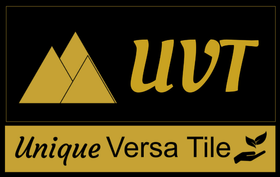Is there a use for tile that has less than 0.01% Water Absorption Rate (WAR)?

In this article we are going to explore where you would use porcelain tile as defined by ANSI 137.1 –TCNA; Less than 0.5% WAR.
Porcelain tile with 0.01% water absorption is considered ultra-low absorption and is typically highly durable, dense, and impervious to water, making it suitable for specific architectural projects where water resistance, durability, and high performance are critical. Here are the types of projects where architects would likely specify porcelain tiles with this level of performance:
- Swimming Pools and Spas
- Application: Pool interiors, pool decks, wet areas, and spa facilities.
- Why: Tiles with such low water absorption prevent water penetration, reducing the risk of cracking or deterioration due to freezing and thawing cycles, especially in outdoor installations.
- Commercial Kitchens
- Application: Floors and walls in restaurant kitchens, industrial kitchens, and food prep areas.
- Why: These areas require materials that can withstand high moisture, heavy foot traffic, and frequent cleaning with harsh chemicals. Ultra-low absorption tiles resist water damage and staining.
- Exterior Facades
- Application: Cladding or ventilated facades on commercial buildings, skyscrapers, and residential projects.
- Why: Exterior tiles need to resist moisture, especially in freeze-thaw climates, where water absorption can lead to cracking. Low water absorption ensures long-lasting performance and reduced maintenance.
- Public Restrooms and Shower Areas
- Application: Restrooms in shopping malls, airports, stadiums, and other high-traffic areas.
- Why: These spaces are constantly exposed to moisture, and porcelain tiles with ultra-low water absorption ensure longevity, cleanliness, and slip resistance in these environments.
- Medical and Pharmaceutical Facilities
- Application: Floors and walls in hospitals, labs, clean rooms, and pharmaceutical production areas.
- Why: Such facilities require materials that are not only hygienic but also able to withstand constant cleaning and sterilization processes without absorbing moisture or bacteria.
- Laboratories and Research Facilities
- Application: Floors and countertops in labs handling chemicals, liquids, and experiments.
- Why: The tiles need to resist chemical corrosion and be impervious to water and other fluids that might spill during experiments. This ensures durability and safety in the workspace.
- Public Transportation Hubs
- Application: Train stations, subways, airports, and bus terminals.
- Why: These areas see heavy foot traffic and are frequently exposed to outdoor elements. Tiles with extremely low water absorption reduce the risk of slipping and withstand the constant exposure to moisture.
- Cold Storage Facilities
- Application: Refrigerated warehouses, commercial freezers, or cold storage facilities.
- Why: In environments where temperature fluctuations are common, especially at freezing temperatures, tiles with low water absorption prevent cracking and damage caused by freezing and thawing.
- Car Washes and Auto Detailing Facilities
- Application: Floors and walls of car wash bays, service areas, and detailing shops.
- Why: These spaces are constantly exposed to water, chemicals, and heavy cleaning agents. Porcelain tiles with ultra-low water absorption are ideal as they resist water damage and wear.
- Industrial and Manufacturing Plants
- Application: Floors in factories and manufacturing plants, especially those handling liquids, chemicals, or heavy machinery.
- Why: These tiles provide durability under harsh conditions, resisting water, chemicals, and physical wear.
- Food and Beverage Processing Facilities
- Application: Floors and walls in dairy farms, wineries, breweries, and meatpacking plants.
- Why: These environments often have constant exposure to moisture, fats, oils, and harsh cleaning processes. Tiles with low water absorption resist staining, bacterial growth, and deterioration.
- Outdoor Patios and Rooftop Decks
- Application: Residential and commercial outdoor spaces.
- Why: In climates where freeze-thaw cycles occur, using ultra-low absorption tiles is critical to prevent damage due to expansion of absorbed water freezing in the tile pores.
- Sauna and Steam Rooms
- Application: High-humidity environments in wellness centers, gyms, or luxury homes.
- Why: The low absorption properties are ideal in areas constantly exposed to steam and high humidity, ensuring the tile remains intact and mold-resistant.
- High-End Residential Homes
- Application: Luxury bathrooms, kitchens, and outdoor areas in custom-built homes.
- Why: For clients looking for the best in performance and longevity, porcelain tiles with ultra-low absorption can be used in high-moisture areas like bathrooms, wet rooms, and around pools.
- Science and Technology Centers
- Application: Floors and walls in research facilities or centers focused on high-tech industries.
- Why: These tiles are often used for their durability, low maintenance, and resistance to spills of chemicals or liquids common in tech-driven environments.
Porcelain tiles with such low water absorption are extremely versatile and durable, making them a great choice for environments that experience a lot of moisture, heavy traffic, and require materials that can withstand both physical and environmental stresses.
- Sharron Martens

Comments 0